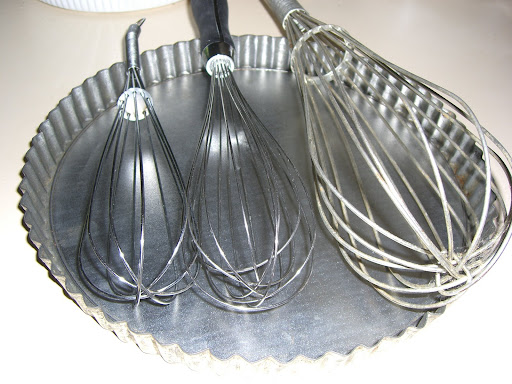
I have a rare chance to make up for a lost opportunity. I had wanted to dedicate my PhD thesis to Julia Child. The topic had nothing to do with cooking, at least in the way the word cooking is generally used. I was studying how digestive enzymes, which are large proteins that break down the food we eat, get from the pancreas where they are made into the gut.
Instead when push came to shove I decided to dedicate it to my younger brother. He had died my junior year in college of cystic fibrosis, just shy of the age of thirteen. Cystic fibrosis is a disease in which digestive enzyme secretion is impaired and children cannot breakdown the food they eat. That's him below at my older brother's wedding---capturing the action. Had Bruce lived, he---not I---would have been the scientist in the family. Not least because my dissertation happened to be on digestive enzyme secretion, it seemed right to dedicate it to Bruce. I am glad I did. 
I was drawn to the idea of dedicating my dissertation to Julia because learning to cook from her exceptional cookbook gave me the courage I needed to go into science. An intuitive type, I had always been a bit spacey. I had assiduously avoided serious science, and especially laboratory science, feeling it alien to the likes of me. Learning to cook in the years just after college under Julia’s tutelage gave me confidence in my ability to weigh and measure. She did much more; she helped ground me in the world of sensation and also introduced me to the pursuit of excellence.
Though nominally I was teaching, my real job---and joy---was cooking. In the beginning my love affair with Julia and fine food took place in a tiny closet of a kitchen with no counter space what-so-ever and only a 2 x 2.5 foot table. Nonetheless I followed almost every step of her recipes as if they were sacred texts that held the secret to life. In some sense to me that's just what they were--- and I suspect I was not the only one. Julia opened this country up to the joys of the palate and much more.
I wonder did Julia serve as a stepping stone into science for anyone else---or am I the only one? As a youngster I knew science was supposed to be about observing the natural world, but little I saw jibed with what scientists supposedly said--- like apples and feathers falling at the same rate. At another level the control and precision that experiments required was not associated with women for me. Women didn't control the environment, men did. I don't think a male Julia Child, clarity, nonchalance, breathiness and all, would have had the same influence on me. Because Julia was a woman, she gave me permission; once I had begun to master French Cooking, the possibility of mastering other things became real to me as well.
My skill with cooking eventually went beyond just following Julia’s instructions. As I mentioned in my last post "Intuition and Brussels Sprouts," sometimes when I put myself in a special non–thinking but completely attentive state while adjusting the seasoning of the dish, I would know just when it was enough. Cooking tends to involve great deal of implicit learning, unconscious information processing, and expertise. However the connection between cooking and intuition is even deeper.
Years ago, when a friend and I were traveling together throughout Western US and Canada, she taught me to choose restaurants by their signs. It turned out to be a pretty good rule of thumb--- a restaurant with an appealing sign generally had correspondingly good food. Over the years, I have thought a lot about what this special something is that goes beyond good design.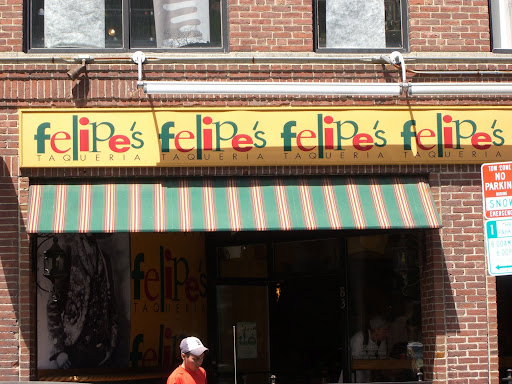
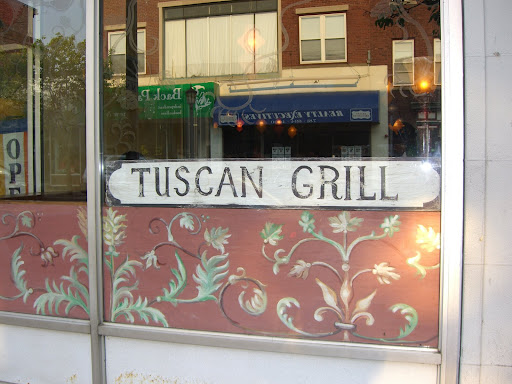
On Julia's website at the Smithsonian below a picture of her in the kitchen in France where she first started to cook is a quote from her “The whole thing was an opening up of the soul and spirit for me." Food is the most direct way we take in the external world and make it part of ourselves. Much of the time we eat without awareness. We are just following our biological imperative to survive. But when we do it with consciousness, this transmutation of world into self can also become a bridge between the sensual and spiritual. To begin with, as the tradition of saying grace highlights, we appreciate the bounty of the earth.
When the food is really delicious---to the extent we savor it--- we are also led into different and more rarefied realms of appreciation and even joy. The cook who pats herself on the back for making a wonderful new dish, in addition to appreciating her own skills, is celebrating---even when she doesn't know it---the slightly enlarged world of nuanced experience her own intuition has opened for herself and guests. (Of course, this opening might instead depend on the intuition of others codified in a recipe, combined with her skill.) When she makes and serves an old favorite, she revisits that special place again.
If you want to get heightened sense of the way food can carry one beyond oneself to new places, you might try a radical experiment---eating a wonderful meal in the company of friends in complete silence. It is hardly anti-social! Rather to the extent one remains present, it leads to an intensified experience of both food and friends. “It is the nectar.” as a friend who I convinced to lunch in silence on the veranda of a lovely restaurant in Italy during a busy conference said. Alas, Julia opened the possibility of experiencing this nectar for so many of us.
Had I dedicated my thesis to Julia back then, my appreciation of her influence on my life would have been incomplete. I was still years away from my current interest in exploring and resonating the experience and science of intuition. But what is a mere twenty seven years when completeness is at stake? Here is the original dedication, and below what I would now add:
This dissertation is dedicated to Bruce Isenman. He wanted to be a scientist, and I believe nothing would have stopped him had he lived.
This study is also dedicated to Julia Child. By teaching me to weigh and measure with the best of them, she gave me the confidence I needed to become a scientist. I now know that she also helped chart my course beyond to resonate more subtle yet no less real realms of knowledge and experience with scientific understanding.
************************************
(A Work In Progress)

I am not sure about what these signs reveal, but I am certainly intrigued by them. The restaurant has been there since my college years and back then had excellent subs. It recently closed.
This one has changed hands at least once and probably more---so it might be a legacy issue as well.
The signs in the foodcourt of the Porter Exchange in the old Sears Building in Cambridge seem to be all by the same artist. They are very attractive but to my mind verging on slick. I think signs by an artist hired by a corporation for a foodcourt are less telling. Most of the food is quite good at the Porter Exchange, if I remember correctly, and hardly slick!


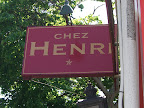



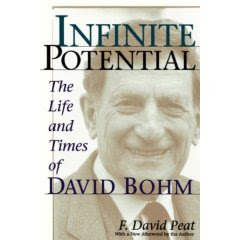


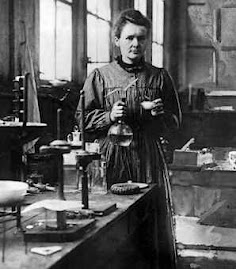






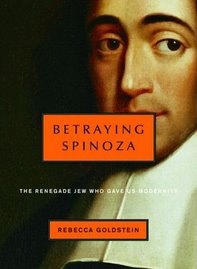

10 comments:
him on the road when I was small My dad traveled for a living and my mother and I went with him much of the time. I learned to pick a restaurant entirely by look. The process is totally subconscious, alas, and I've never been able to analyze it completely. What I do know is that I can choose them for both the food and the dining experience, or for those things separately.
Choosing by signage is a losing proposition, though. The well painted, attractively artsy sign might signify a well decorated restaurant, but it says nothing about the food or the quality of the staff. A small, shabby sign might signify Formica and fluorescent decor but the food can be totally knock your socks off cuisine, especially Asian cuisine, with a staff that appears glad you decided to dine with them.
For people who are on the road and have no background when it comes to picking a restaurant in a small town in flyover country, I do offer one suggestion: look for the cop cars. Cops are locals and they'll go where the food is good, cheap and plentiful.
Grease dripping down the front window with flies stuck in it is always a bad sign, though, unless you like army or prison food.
I certainly agree that the artistic quality or being artsy is beside the point. (See for example the sign for the Japanese Restaurant at the food court, which I feel suspect.) Nonetheless I do think something about the restaurant sign must appeal, must please at some level---though this can super subtle to the point of verging on imperceptible. (Also to what extent these judgments are subjective is unclear)
Eventually I will put up some more really simple signs that signal good food to me. Check out the "Eating Place" signs. They definitely bespeak good food to me, but I am not sure whether it is the signs or the name that really grabs me---or the combination of the two.
...you say that Julia Child was your influence for studying the sciences, she was mine for studying French. I have often thought that she was the reason behind my desire to study French, it's just odd to find someone else who was also influenced by her in a non-cooking way.
Bon appétit!
Edit for "nice run-on sentence"
Done and thanks!
I was married to an organic chemist. I always thought that what he and I did differed chiefly in scale; but what I did tasted better. You may know that Phil and Phyllis Morrison, advocates of both intuitive and precise science, were great friends of Julia and practiced her art with joy and precision.
hh
Hi, It is interesting that you like Julia so much. Being an resercher in and drwn to the topic of intuition I would've thought that you would like some one more like Jacque Peppin. I have watched them separately and together on TV and here is the difference between them:
Julia is not a natural cook. She has become one through painstaking effort. When she cooks you can clearly see that she is not very "natural". She painstakingly measures everything and does not vary from a recipe even a tiny bit etc.
Now you observe Jacque. He is natural in the kitchen. He is an artist. What is hidden in this consummate artistry is that the effort and science are hidden because of intense practice. As he used to say first comes the technique. Then the creativity comes out and transcends the technique but technique is always there but just overawed. It is similar to a tennis player such as Federer. The technique is hidden by the supreme artistry of wielding the racket. The artistry hides the effort which is always there.
Regards,
Madhu
Several years ago, when Julia came back to Northampton, the city of her alma mater, my brother and his wife were sitting at a table in the window of a well-regarded restaurant on Main St. They looked out, only to see Julia walk into a diner across the way that is known to locals as somewhat of a dive, but also known for giving food to homeless people who walked in.
Dissertation is a formal expositon of a subject and a treatise to an advance point of view resulting from a research. It is usually a requirement for an advance academic degree.
Hy Lois Isenman I have just bookmarked this website in my favorites, thanks for such an amazing post about dissertations. I didn’t have much idea about it before but I think, now, I can very well handle it.
Not least because my dissertation happened to be on digestive enzyme secretion,
dissertation-topics-examples.info
Post a Comment